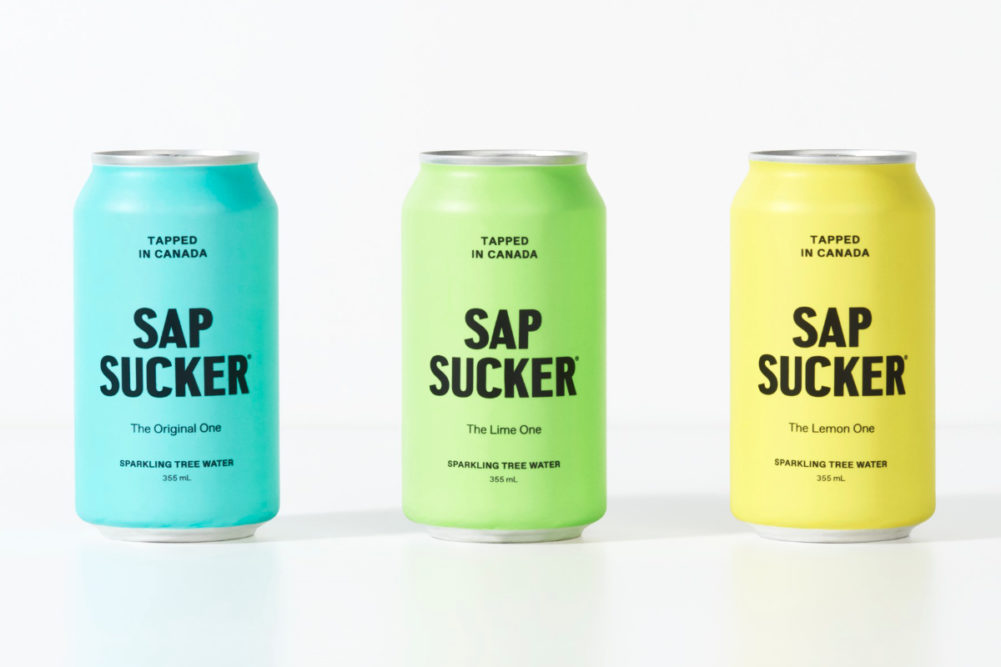TORONTO — Maple and birch water have created a splash in the functional beverage market as several startup brands tap the tree sap to produce hydration with half the sugar of coconut water, plus vitamins, minerals and antioxidants. A Canadian company plans to bring its brand of organic, sparkling tree water to the United States next year.
Sapsucker is sustainably harvested from maple trees in Ontario and Quebec and packaged in aluminum cans. Current flavors include original, lemon and lime. The beverage’s subtle natural sweetness places it somewhere between sparkling water and a sugary soft drink.
“A lot of tree and maple waters are flat, but what we’ve found is when you lightly carbonate it, it just becomes an extremely refreshing soda alternative,” said Ryan Klein, chief operating officer of Sapsucker’s parent company, Lower Valley Beverage Co. “It only has 7 grams of sugar and 35 calories. It checks the boxes for the health conscious, but it still has that bit of sweetness that we all crave and look for.”
The company was founded in 2014 by Nancy Chapman. Each spring her family taps its own trees to make maple syrup, and drinking the sap is part of the tradition. The coconut water boom and growing interest in local and natural foods and beverages inspired her to launch the business.
Last year, Ms. Chapman expanded her team with the additions of Tim Lute, a 20-year veteran of the Coca-Cola Co., as chief executive officer, and Mr. Klein, previously with Freshii restaurant company. Soon after, the brand introduced a new take on Sapsucker.
The previous iteration was still, not sparkling, and offered in tetra pak packaging. Sapsucker in its current canned and carbonated form is more versatile, Mr. Klein said, pointing to its use as a post-workout quencher, a mid-day refreshment or an after-work cocktail mixer as examples.
Over the past year, Sapsucker has been rolling out to major retailers across Canada. Foodservice represents a promising opportunity for the brand; however, the pandemic and related lockdowns have significantly slowed Sapsucker’s momentum in that market.
In the meantime, the company is partnering with meal kit delivery services to generate trial and build brand awareness. Sapsucker also has launched an online direct-to-consumer business and is rethinking its pack sizes for retail as shoppers make fewer trips to the grocery store.
Additionally, the company has plans to expand overseas and already exports products to boutique cafes and department stores in South Korea, where maple holds a symbolic meaning, Mr. Klein said.
“International is a whole other opportunity,” he said. “The reason is tree water is only (produced) in Canada. That’s as Canadian as it gets.”





